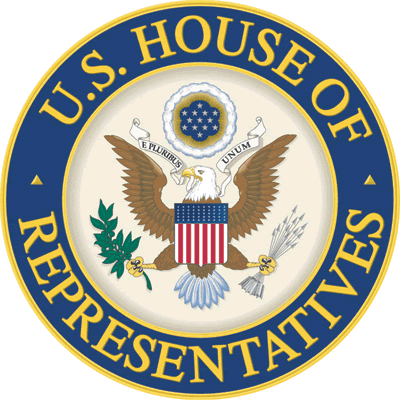The September 28th House “debates” over a last-minute continuing resolution to fund the federal government until December 9 (after the November election) were again misleading. They mislead Americans as to the House’s true power over the purse — IF it had the will to use it.
In The Federalist, No. 58, Father of the Constitution James Madison explained the awesome unused power of the purse, which the Constitution assigns to the House of Representatives:
“The House of Representatives can not only refuse, but they alone can propose the supplies requisite for the support of the government. They, in a word, hold the purse — that powerful instrument [for] finally reducing … all the overgrown prerogatives of the other branches of the government. This power over the purse may, in fact, be regarded as the most complete and effectual weapon with which any constitution can arm the immediate representatives of the people for obtaining a redress of every grievance, and for carrying into effect every just and salutary measure.”
Rather than asserting this power, however, the debates claimed that the House needed to work cooperatively with the Senate and the President, while perpetuating the false notion that all parties are sincerely interested in the good of the country.
House Debates (from Congressional Record)
Leading the majority (Republican) debate in the House, Rep. Tom Cole argued:
“Mr. Speaker, as a member of the Appropriations Committee, I am always disappointed when we are forced to consider continuing resolutions, especially given the work this House has done in the appropriations process this fiscal year.
“For 2 years in a row, the House Appropriations Committee was able to complete all 12 appropriations bills–and complete them before the August recess. In addition, this House passed five appropriations bills. Unfortunately, just as in years past, Senate Democrats prevented consideration of many appropriations bills on the floor of that body. This leads us to the unfortunate situation of having to put forward a short-term CR to fund the government through December 9….
“I think it is worth pointing out that you can’t have regular order in the House if you don’t have regular order in the Senate. The real reason we are here is because the Senate has refused consistently to take up appropriations bills that have been passed by this House. At some point, you simply quit passing the bills because the Senate isn’t going to deal with you.” [Emphasis added.]
We would ask, why must the House bear the blame for a government shutdown if the House has done its job? Why not insist that the Senate (and the President), as a minimum, accept the five appropriations bills as the House passed them or bear responsibility for shutting down just that portion of the government?
Actually, the CR package included one of the least controversial of the 12 regular appropriations bills, funding its programs for the entire fiscal year 2017. Appropriations Committee Chairman Harold Rogers pointed out:
“[T]he package contains the full-year Military Construction-VA bill for FY17, which was conferenced by the House and Senate and passed by the House already in June [H.R. 2577, Roll Call 342, H.R. 2577]…. It is important to note that, once the President signs this bill into law, it will be the first time since 2009 that an individual appropriations bill has been conferenced with the Senate and enacted before the September 30 fiscal year deadline.”
Lame Duck Appropriations
When the Congress resumes in the Lame Duck after the election, the leadership of both parties will lobby for either an omnibus appropriations bill, funding the government through September 30, 2017 for the other 11 areas, or for kicking the ball to the next Congress with another short-term continuing resolution. True constitutionalist should not support either option.
While the four appropriations bills passed by the House and not taken up by the Senate may not have been worthy of support individually, constitutionalists in the House should not allow a new CR or omnibus to include those areas. A House that asserts its dominance in appropriations is a necessary base from which to roll back unconstitutional government. And in a world dominated by a hostile Establishment media, that requires regular order.
So, as a minimum, constitutionalists should refuse to vote for any omnibus appropriations bill that includes those four. And best, insist on 11 separate votes.

